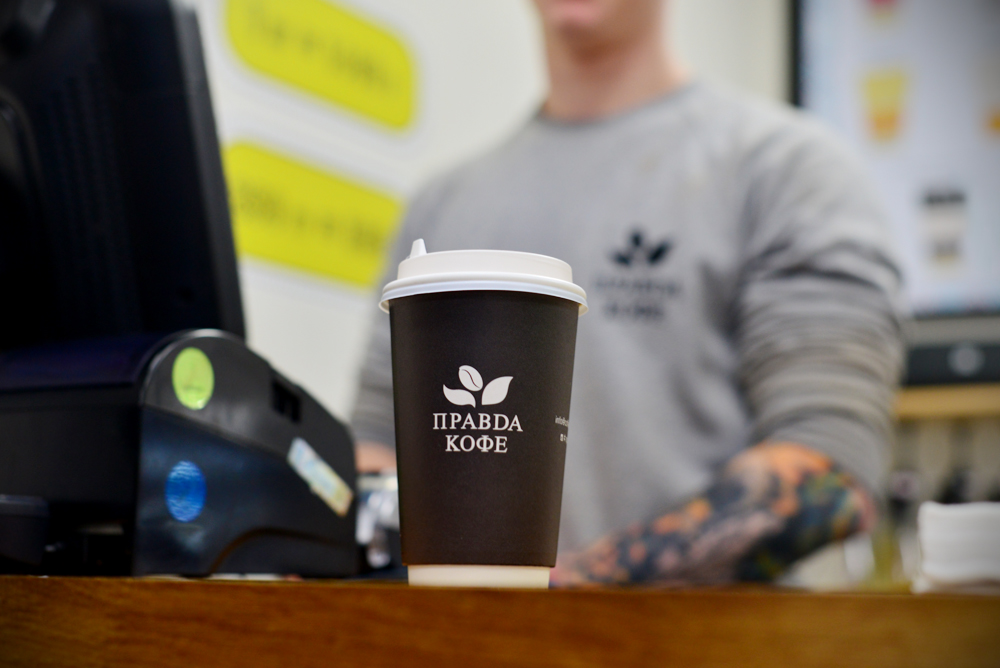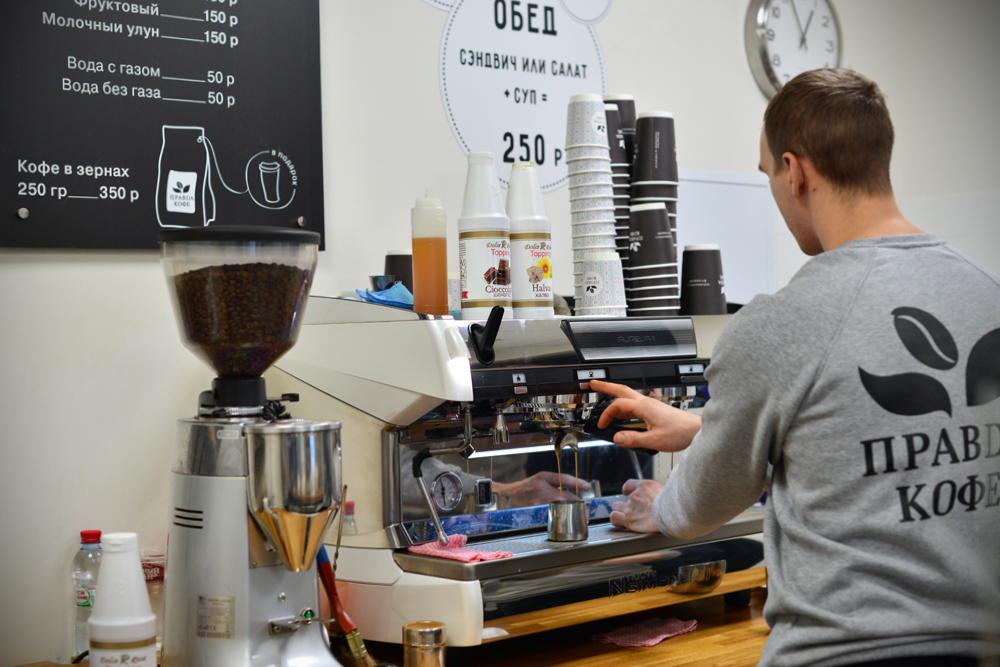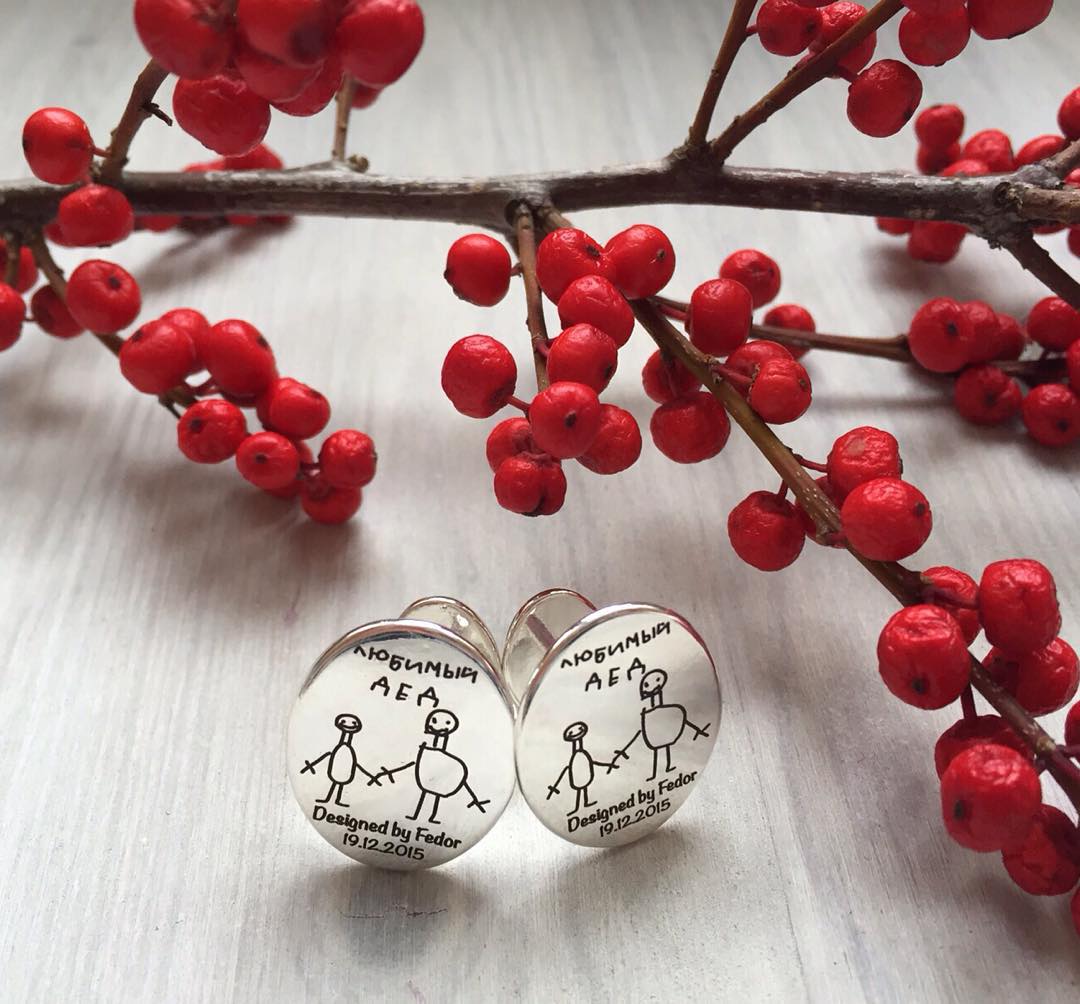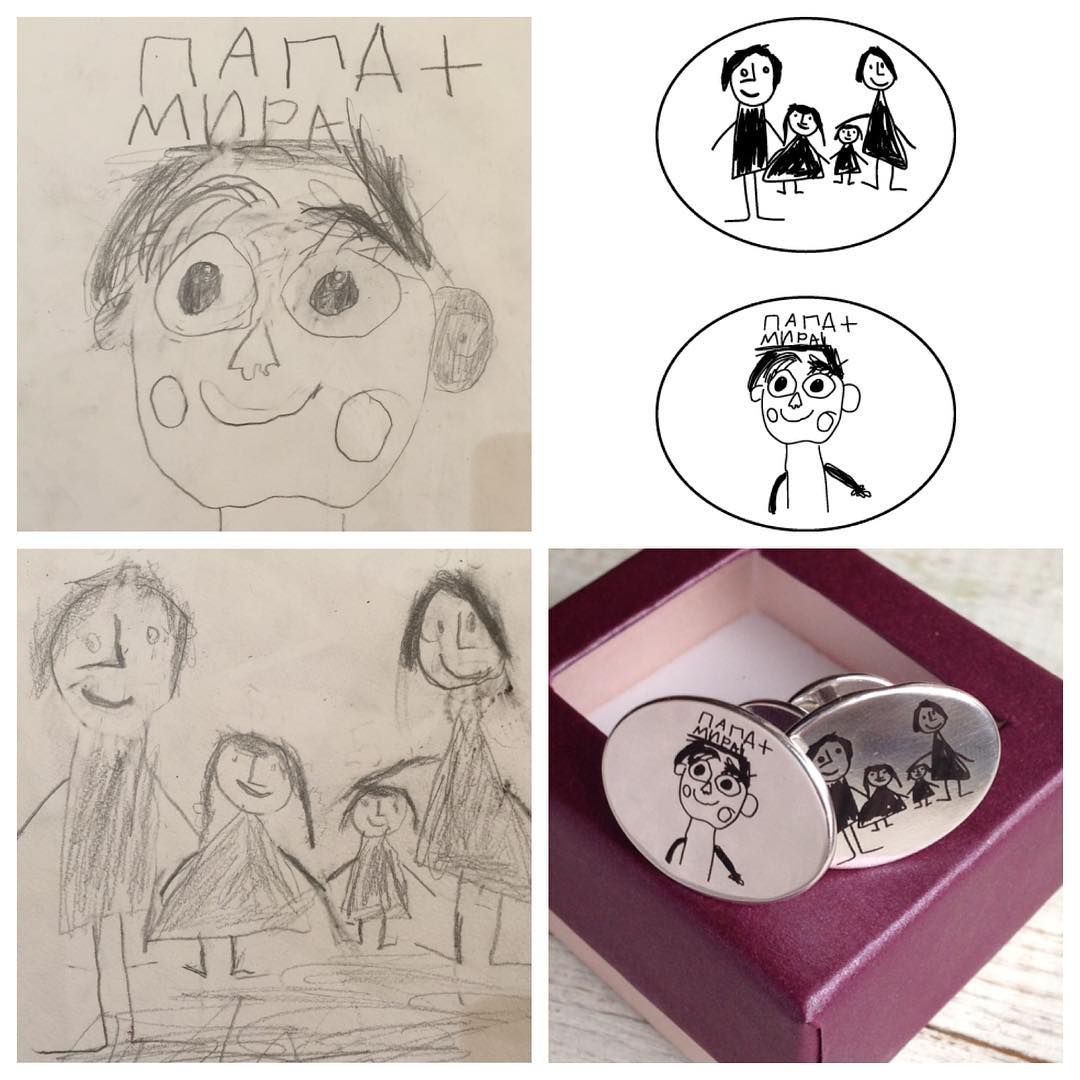
Pravda Coffee (Pravda Kofe).
Nikolai KorolevWhile for many in Russia the financial crisis has become a byword for austerity and limited opportunity, for a number of determined entrepreneurs it has been a voyage of discovery.
"I'd be better off selling 200 cups of coffee for 40 cents, than only 10, but for $3 each," says barista Filipp Leites, a 2011 World of Coffee champion.
Leites runs Pravda Coffee (Pravda Kofe), a coffee-house mini-chain that has four of its own and two franchise outlets in Moscow.
Leitnesa, who started out selling his own roasted beans, was clearly on trend, as the number of coffee houses has soared in Russia during the crisis. According to the 2GIS service's analytical department, the number of coffee outlets increased in 2015 by 28.7 percent in Moscow and by 25.3 percent in St. Petersburg, with a visible increase in the number of kiosks and cafes in the two cities.
With the cost price of 22 rubles ($0.3), prices in Pravda Coffee range from 50 ($0.65) to 150 rubles ($2). There is a Starbucks across the street from one of Leites’ establishments. Coffee costs twice or even four times as much there, depending on the volume of the cup.
"Our first business partners launched a franchise coffee house in the fall of 2015 and, two months later, they had a good turnover of 600,000 rubles ($7,850)," said Artyom Kopayev, who was invited by Leites to join the team specifically for the development of the franchise.
 Pravda Coffee (Pravda Kofe). Source: Nikolai Korolev
Pravda Coffee (Pravda Kofe). Source: Nikolai Korolev
According to Kopayev, the coffee business is one of the easiest to enter; you can start with just 300,000 ($3,900). However, it is difficult to hold on to.
"The first result can be obtained no sooner than in three months. Not everyone is ready to wait for this," said Kopayev.
Another problem is that the business requires stable quality, but coffee beans have become more expensive because of the devaluation of the ruble.
"If we need to reduce costs, we can always buy green beans directly in Brazil," said Leites. "The main thing is that we roast the coffee ourselves."
Many ideas for small businesses first appear on the internet. In August 2015, for example, a Facebook group appeared under the name of Need Something. Those about to leave Russia on a trip leave notices that they can deliver something or just bring back some cheese and jamon, the sale of which is banned in Russia because of the counter-sanctions imposed on the EU by Moscow.
Those who help and are not flying anywhere can also leave similar notices. The group already has about 6,000 members, but founder Mikhail Volkov is not yet positioning it as a business. Monetization is only part of his plans for now, but the group already features some paid adverts.
Former marketing specialist Tatyana Yusan and her colleague have been developing a business based on drawings for the last 18 months. In the fall of 2014, they launched a website called Mylittlerembrandt, which offers to engrave children's artistic creations on any objects, turning them into a unique gift for relatives. It can be a wallet, a phone case or cufflinks.
"For the first two months, we carried out the orders for free to advertise ourselves," said Yusan. Then the first customers began to arrive. "Sales peaked in December 2014, when we first paid for monthly costs of production," she said.
 Source: Press Photo
Source: Press Photo
It turned out that single piece production, where the margin is 40-50 percent, can be profitable in a crisis.
Now, the project has reached 150-200 orders per month with an average check of 5,000-6,000 rubles ($65-$78). As the crisis began, the price tag for certain items increased by 30 percent.
"But our clients turned out to be not sensitive to the price; the product itself causes strong emotions, many come back with repeat orders," said Yusan.
 Source: Press photo
Source: Press photo
Over six years, the team has grown to eight people, while monthly turnover reached about 1 million rubles ($13,075). Of this sum, 70 percent is allocated to business development. Last year, for example, a handmade jewelry line was launched.
Because of the devaluation of the ruble, Yusan sees a chance to win the Eastern and Western European market; she already has a few Russian-speaking clients from Germany.
"When recalculated in euros, our prices are very competitive," she said.
All rights reserved by Rossiyskaya Gazeta.
Subscribe
to our newsletter!
Get the week's best stories straight to your inbox